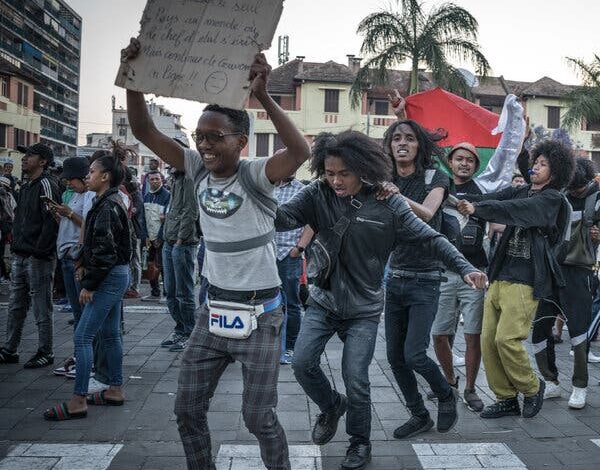Global Gen Z Movements Challenge Governance Amid Youth Unrest

Protests led by Gen Z activists are reshaping political landscapes in countries such as Nepal and Madagascar, highlighting a rising generation’s demand for change. Recent movements have emerged from a shared sense of urgency among young people facing corruption, unemployment, and a lack of democratic engagement.
These protests, fueled by social media and global youth culture, have toppled governments in both Nepal and Madagascar. A striking phrase from a protester in Nepal, “corruption is sus, stop ghosting democracy,” illustrates the youthful frustration driving these movements. Similar sentiments resonate across continents, with demonstrations also taking place in Indonesia, the Philippines, Kenya, and Peru.
Common Grievances Spark Global Action
The immediate catalysts for these uprisings vary by nation. In Nepal, the protests erupted following a sudden ban on social media, while in Madagascar, citizens reacted to inadequate access to water and electricity. Both nations share a young demographic; the median age in Nepal is 28, while in Madagascar it is just 21. Youth unemployment remains alarmingly high in both countries, further exacerbating feelings of disillusionment.
According to research by Abigail Branford at Oxford University, deep-seated issues such as corruption and economic stagnation plague many nations with youthful populations. “The economy just can’t absorb the number of young people entering the job market,” Branford noted, emphasizing the structural barriers these young activists face.
Social media has played a crucial role in uniting these movements. As Hannah Beech, who reported on the protests in Nepal, stated, “Even if you’re in a village, on a mountaintop, or in a desert, young people are connected on TikTok and Discord.” This digital connectivity fosters a shared language and culture among youth activists, enabling them to draw inspiration from one another’s struggles.
Unexpected Outcomes and Future Implications
The aftermath of these protests has revealed a troubling paradox: while Gen Z activists possess the power to initiate change, their influence over subsequent political developments appears limited. In Madagascar, the military seized control following the president’s departure, leading to the appointment of a traditional politician as the new head of the National Assembly. Many younger citizens expressed disappointment, feeling increasingly marginalized from the political process they sought to influence.
In Nepal, a similar sentiment prevails. Youth leaders who were consulted by the interim prime minister after the protests have since reported feeling sidelined. This disconnection raises critical questions about the sustainability of these movements and whether they can effectively address the systemic issues that prompted them in the first place.
A Nepali protester poignantly captured this uncertainty, asking, “What if everything goes back to the same way, even after we lost our blood and fallen comrades? What if all this was a waste?” The struggle to ensure that revolutionary fervor translates into tangible improvements for young people remains an ongoing challenge.
As these movements continue to unfold, the international community watches closely. The experiences of Gen Z activists in Nepal and Madagascar echo the protests of previous generations, such as the Arab Spring, which similarly failed to yield lasting democratic reforms in many regions. The question remains: can these young revolutionaries translate their momentary power into lasting change, or will they find themselves at the mercy of entrenched political structures?
The world is at a crossroads as young people demand accountability and representation in governance. Their ability to navigate the complexities of political reform will determine the future trajectory of these movements and the prospects for change in their respective countries.






